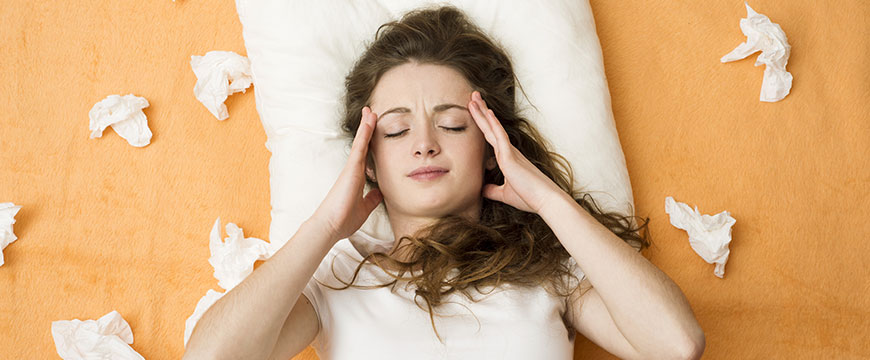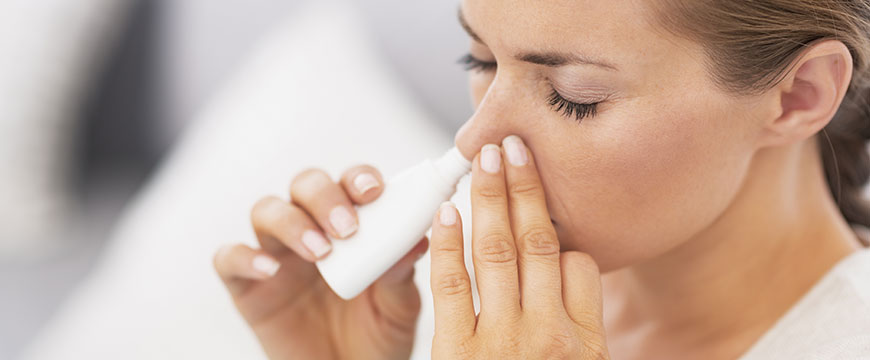
A hay fever is an allergic reaction when grass or tree pollen enters your mouth, nose, eyes, or throat. As it would against a virus, your immune system tries to combat the pollen, which results in an allergic reaction and the accompanying symptoms.
Depending on the amounts of grass, weed, and tree pollen and the materials you are allergic to, hay fever can linger for weeks or months, in contrast to the typical cold, which often only lasts a week or two.
Nearly 19 million people in America suffer from hay fever, according to the Centers for Disease Control and Prevention (CDC)Trusted Source.
The typical symptoms of the condition include:
Runny nose, congestion, watery, red, or irritated eyes, sneezing, coughing
While hay fever can have symptoms lasting for extended periods of time, it’s not hard to manage. You can do it even without having to see an allergist. Some of the things you need to do to manage the condition include:
Track the pollen count
Knowing the pollen count, you can better anticipate and prepare for peak pollen days. This means you can take the necessary precautions to reduce exposure and better manage the symptoms.
Through proper tracking, you know when to take the medications. Antihistamines and nasal corticosteroids are the most common medications for hay fever that function best when taken before allergen exposure.
By monitoring pollen levels, you can easily schedule when to take the medications; consequently, you can easily manage the condition.
When you know the high pollen counts, you can easily take precautions to limit your exposure to pollen. When you know you will have a high pollen count, you get to close windows, use air purifiers, and stay inside when pollen counts are at their highest.
To certain people, hay fever can worsen pre-existing respiratory diseases like asthma or cause severe allergic reactions (anaphylaxis). By monitoring pollen counts, you can be proactive and avert emergencies.
Observing the pollen count over time can help you recognize trends and patterns. Regular planning lets you tell the times of year when symptoms are at their worst and modify your lifestyle choices accordingly.
Finally, knowing your daily pollen count gives you peace. This is because you have control over exposing yourself. With this knowledge, you can manage the allergies and lessen the unpredictable nature of symptom flare-ups.
Installing a pollen count app on your phone is one of the best ways to track the pollen count. There are free and paid apps you can go for. Of course, the paid versions will often have better features, so if you can afford them, these are the best.
Stop smoking
Smoking can worsen hay fever symptoms by irritating the lining of your airways, resulting in a dry, uncomfortable cough.
As much as it’s easy to say that you should stop smoking, it’s pretty hard. Thankfully, you have a few options to support you if you’re trying to give up or reduce the number of cigarettes you smoke.
One option is to consider nicotine replacement therapies. These include gums, patches, lozenges, inhalators, and sprays that supply the body with little nicotine while eliminating tar, carbon monoxide, and other toxins in cigarettes.
Talk to your doctor or pharmacist for advice on which type of NRT would be best for you if you’re unsure.
Manage the pets
Your favorite fluffy animals tend to bring pollen and other allergens, which can worsen the symptoms. To ensure this doesn’t happen, you need to control the pets.
One way to control the pets is by having pet-free zones in your house. Ideally, the bedroom and any other spaces where you spend a lot of time should fall under this category. By keeping these spaces free of dander, you’ll have a place to go when your allergies flare up.
Regular pet grooming can help lower the quantity of dander and loose fur. To stop pet dander from getting inside, brush your pet outside. Consider getting your pet professionally groomed if it has thick or lengthy fur.
Use medication
There are plenty of medication options in the market that you can use to manage your condition. Some of the options that you can go with include:
Antihistamines: Antihistamines prevent the body’s allergic reaction to pollen, which helps control minor hay fever symptoms. They are most frequently found as tablets and liquids, which you can take as needed to assist you in managing your symptoms or as often as necessary during the season.
To determine which antihistamine is best for you, consult your allergy doctor.
Nasal sprays: Pollen tends to induce inflammation of the nasal lining. If you have trouble with a runny or clogged nose, sneezing, or both, you can use nasal spray in addition to antihistamines.
Many over-the-counter nasal sprays are available to assist in reducing the symptoms of hay fever. For instructions on how to use these products, always read the instructions that come with them. If they prove to be ineffective, discuss prescription-only treatment with your doctor.
Eye drops: There are plenty of allergy relief eye drops that you can use to alleviate dryness, discomfort, and watering of the eyes.
Ask your allergy specialist Manassas VA if you’re unsure which eye drops are right for you.
Barrier balm: Stop pollen from entering your nasal passage to protect the body’s major entry point. To help your nostrils capture pollen and prevent it from spreading, dab a small amount of petroleum jelly around the opening of your nose.
Sunglasses: Although not a type of medication, they are vital in protecting and helping you manage the symptoms.
Wearing the appropriate shades can help protect your eyes from the sun and be a useful addition to your regular hayfever regimen. Wear wraparound styles if you have hay fever since they help keep pollen out of your eyes.




